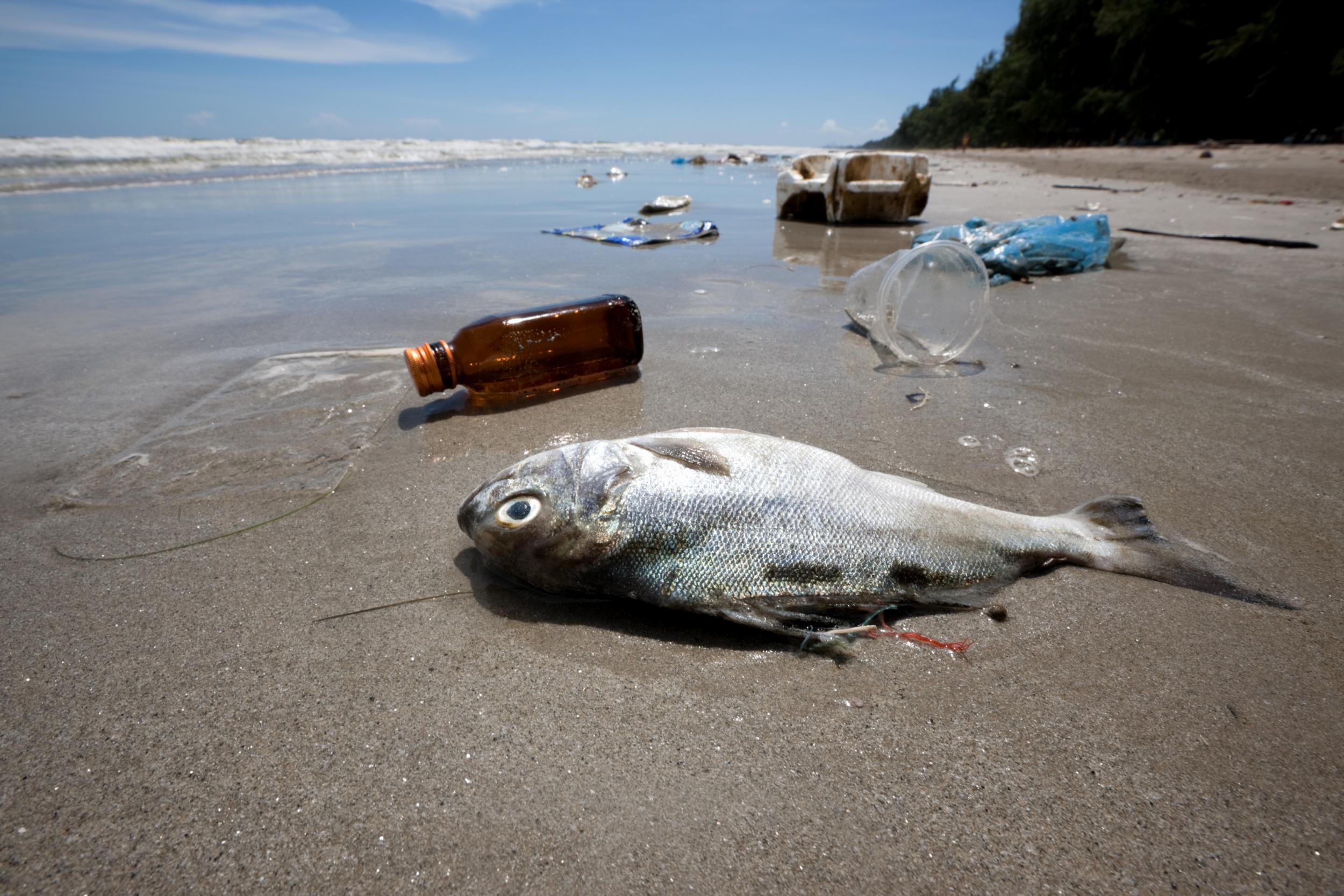Plastic pollution is clear to see – but the invisible threats need our attention too
Analysis: What does living in an increasingly plastic-saturated world mean for us?

Until the early 20th century, the world was completely free of manufactured plastic. Metal, glass, leather, wood, stone, bone and ceramics were our species’ most useful everyday materials.
The first entirely synthetic plastic was Bakelite, invented in 1907 in New York by Belgian chemist Leo Baekeland.
Just over 100 years later, our species has engineered a new world highly dependent on plastic and almost impossible to imagine without.
The light, cheap, waterproof and versatile array of plastic materials available today can be used to make fibres for clothing; form integral parts in cars, aeroplanes or buildings; can seal food and drink in clean containers; or be used in any number of medical applications to save lives.
But our appetite for this wonder-material has seen us smother our planet with plastic.
Most plastics take centuries or millennia to break down. A disposable nappy takes an estimated 500 years to decompose. All the plastic nappies ever used in the history of our species are all still out there in some form.
Recently it has been well documented that our oceans have become enormous depositories for plastic waste.
An estimated 12.7 million tons of plastic end up in our oceans each year, or about a lorry-load every minute, constantly, according to Greenpeace.
As well as being able to see the evidence of this with our own eyes, the media have also begun to shine more light on the problem.
Images of whales choking on tons of waste, sea turtles enmeshed in abandoned fishing nets and seabird carcasses brimming with small pieces of plastic they have mistaken for food have helped highlight the urgent problem.
But what is much less recognised is the invisible proliferation and pervasion of plastic into the fabric of our essential natural processes – eating, drinking and breathing. Via these means we are now consuming more plastic particles than ever before.
The average person eats and breathes in up to 120,000 particles of microplastics per year, research out today shows.
Those who drink bottled water drink 130,000 microscopic plastic particles every year from that source alone, while someone who only drinks tap water will still consume 4,000.
The huge quantity of plastic we are pouring into our seas, and which now impregnates our air, has an impact on the food chain.
Previous experiments show plastics can have serious negative effects on aquatic creatures, blocking digestive tracts, altering behaviour and affecting fertility.
As tiny microplastics (less than 5mm in length) break down into nanoplastics (less than 100 billionths of a metre), they are then able to cross cell membranes and come into direct contact with tissues and organs.
But very little is known about how exposure to micro- and nanoplastics directly affects humans.
While we clearly need to know more about this, we should also be working to minimise the unnecessary waste we are putting into the food chain.
A recent government report estimates the quantity of plastic in the sea will treble by 2025.
Even if we eventually learn the tiny plastic particles are not transmitted up the food chain in quantities enough to affect us, it could be too late. With a million birds and over 100,000 sea mammals a year killed by plastic, perhaps by then there won’t be much of a food chain left.
Join our commenting forum
Join thought-provoking conversations, follow other Independent readers and see their replies
Comments